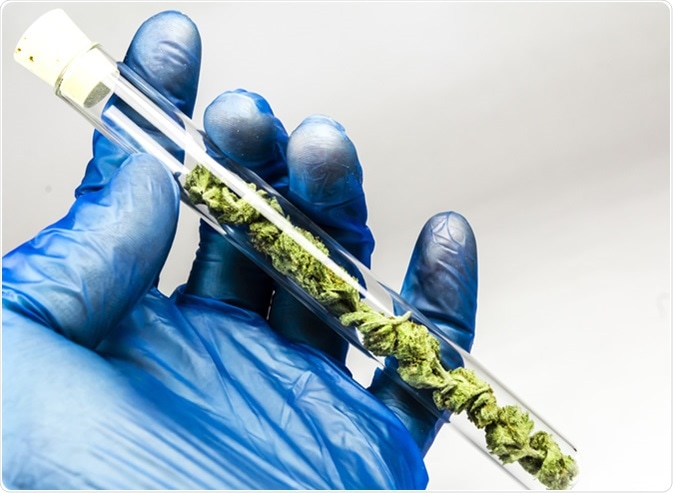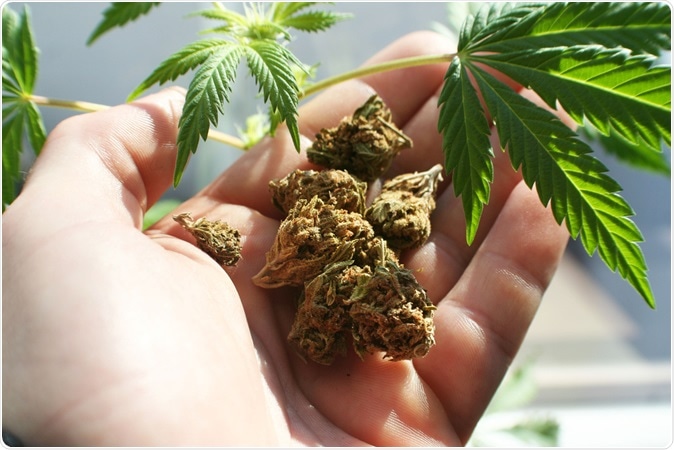Skip to
Our modern lifestyle is quite different from that of past generations, and is often packed with stress. Add to this drug abuse, and the impact on our bodies only becomes worse. These are some of the reasons for today’s growing incidence of male infertility. No less than 7% of men globally suffer from infertility issues.
In the Western world, marijuana is the most widely used recreational drug with a predominantly male user base. Among men, marijuana is being used at younger ages. Many countries have still not legalized marijuana use, though in some its recreational and medical use has recently been legalized. Thanks to a steep increase in support for recreational marijuana use over the years, an estimated 16.5% adults use marijuana in the US. This calls for a better understanding of the health effects of marijuana use.

Image Credit: Mitch M / Shutterstock
What is marijuana and how does it work?
Marijuana, also known as cannabis, is a psychoactive substance derived from the cannabis plant and is used for medical or recreational purposes. The active component present in marijuana is Δ9-tetrahydrocannabiol. It binds to receptors in the testes and brain.
In the past, marijuana has been shown to alter hormone levels, increase the risk of developing psychotic disorders, and affect the brain. Chronic marijuana use is also one cause of cognitive deficits. Yet there are few studies that have observed the effect of marijuana use on male fertility or sperm count. However, there are many rumors about marijuana-induced lowering of sperm count and quality.

Image Credit: Shutterstock
What does research say?
There has been several conflicting studies on marijuana-induced infertility in men. A 2015 study concluded that marijuana abuse was associated with a 28% decrease in sperm count. Thus it noted that marijuana may have a negative impact on male fertility, even in men who have no other issues related to spermatogenesis.
Another study on the effect of marijuana use on sperm found significantly lesser sperm numbers in the semen of marijuana users compared to non-users. The findings also suggested that marijuana users had decreased sperm hyperactivation and hence lower chances of fertilizing an egg. Many other studies on the same topic shared similar findings.
However, a recent study suggested that activation of CB2 receptors using marijuana could actually help treat infertility in males, though prolonged stimulation could suppress testosterone production. Another study found that among ever-users of marijuana, the sperm concentration was higher compared to men who had never smoked marijuana. According to this study, the difference in sperm count between former and current marijuana users was not significant. However, the participants were drawn from men with fertility problems, making the findings non-generalizable.
What can we conclude from this?
These conflicting studies about the link between marijuana use and sperm count emphasize the need for more comprehensive studies on this topic. Many of these studies had several limitations. Some were carried out in men being treated for infertility and may not be capable of being fully extrapolated to men without fertility issues. Moreover, there is always a possibility of under-reporting of marijuana use by study participants given that the drug is not legalized in many countries.
Some researchers concluded that using low levels of marijuana might possibly be beneficial for sperm production and enhance fertility, while at higher levels, marijuana can adversely affect sperm count and hence cause infertility. In other words, moderation is best in this case too. However, the evidence from numerous studies covering thousands of men showing the existence of adverse effects on sperm and male fertility should prompt one to avoid marijuana completely if one is planning to conceive.
The contradictory study conclusions only highlight how little we know of the effects of smoking marijuana on general as well as reproductive health. The results on both sides must be interpreted with the utmost caution, and the need for further research into the health effects of marijuana should be acknowledged. The need of the hour is to achieve a greater understanding of male infertility and the various factors that contribute to the problem.
Further Reading
Last Updated: May 21, 2019